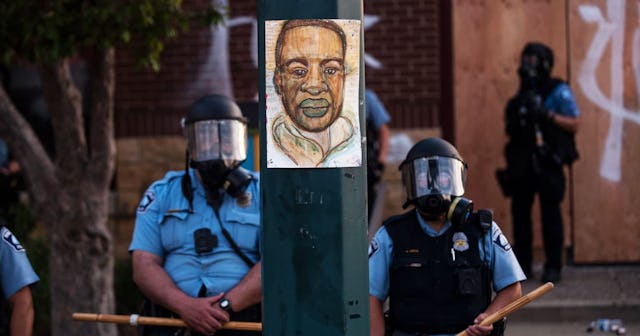Minneapolis City Council Commits To Defunding And Dismantling Police Dept.

Nine out of 13 members of the Minneapolis city council are voting to defund and dismantle the police
Over the weekend, nine members of the Minneapolis City Council announced they intend to vote in favor of defunding and dismantling the city’s police department in response to the murder of George Floyd at the hands of police, and ongoing protests for change in how policing is done in the city. They have the supermajority vote in the 13-member council.
“We committed to dismantling policing as we know it in the city of Minneapolis and to rebuild with our community a new model of public safety that actually keeps our community safe,” Council President Lisa Bender told CNN. “(We need) to listen, especially to our black leaders, to our communities of color, for whom policing is not working and to really let the solutions lie in our community,” she said.
There are many questions as more and more cities consider defunding the police as prior reform measures have clearly not been working. Defunding law enforcement means taking money away from police and prisons and reallocating a majority of that city budget in services that impact the community in a positive way, including housing, employment, mental health, education, and homelessness.
Defunding law enforcement “means that we are reducing the ability for law enforcement to have resources that harm our communities,” Patrisse Cullors, co-founder of the Black Lives Matter, said in an interview with WBUR. “It’s about reinvesting those dollars into black communities, communities that have been deeply divested from.”
Disbanding the department altogether is a little more complex but supporters say the country is long overdue.
“The people who respond to crises in our community should be the people who are best-equipped to deal with those crises,” MPD150, a community advocacy organization in Minneapolis, said. Instead of “strangers armed with guns,” first responders should be mental health providers, social workers, and victim advocates meant to help serve the community rather than police it.
Bender said the council was looking into what shifting police funding may look like and how they want to reorganize the police department. “The idea of having no police department is certainly not in the short term,” she said. In looking at the past several years of 911 calls, they found most were for mental health services, health and EMT, and fire services.
Jeremiah Ellison, city councilman for Ward 5, tweeted a similar message Thursday, writing, “We are going to dismantle the Minneapolis Police Department. And when we’re done, we’re not simply gonna glue it back together. We are going to dramatically rethink how we approach public safety and emergency response.”
Demands to defund or dismantle police departments have grown since Floyd’s death that set off nation-wide protests against police brutality and systemic racism. A system, since the abolition of slavery, that has used policing to criminalize and discriminate in the Black community.
“Yes. We are going to dismantle the Minneapolis Police Department,” Bender tweeted. “And replace it with a transformative new model of public safety.”
This article was originally published on